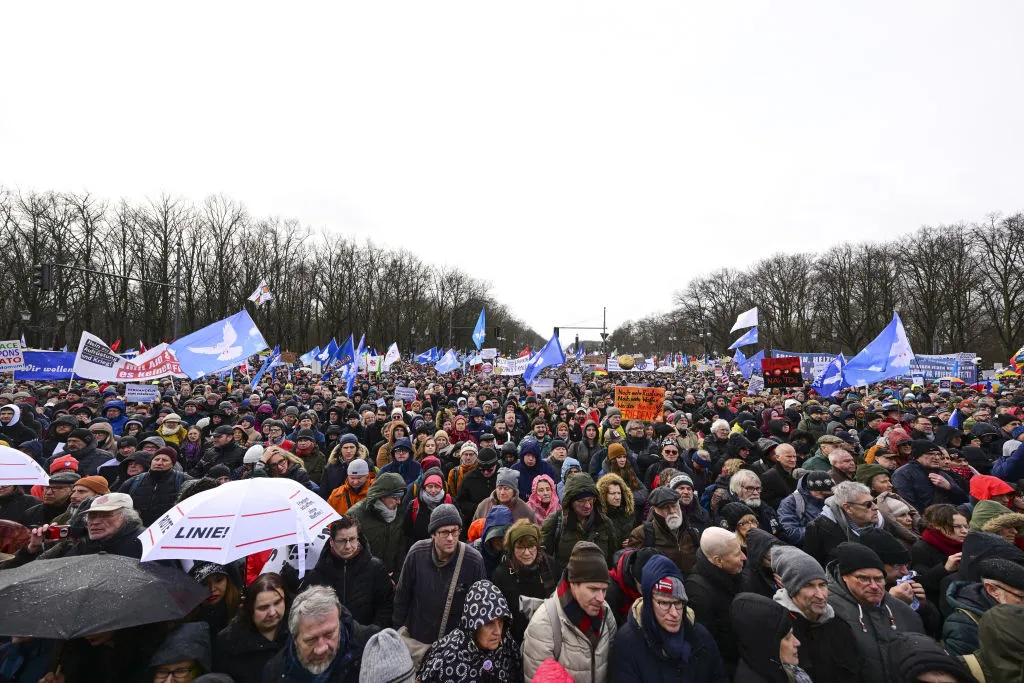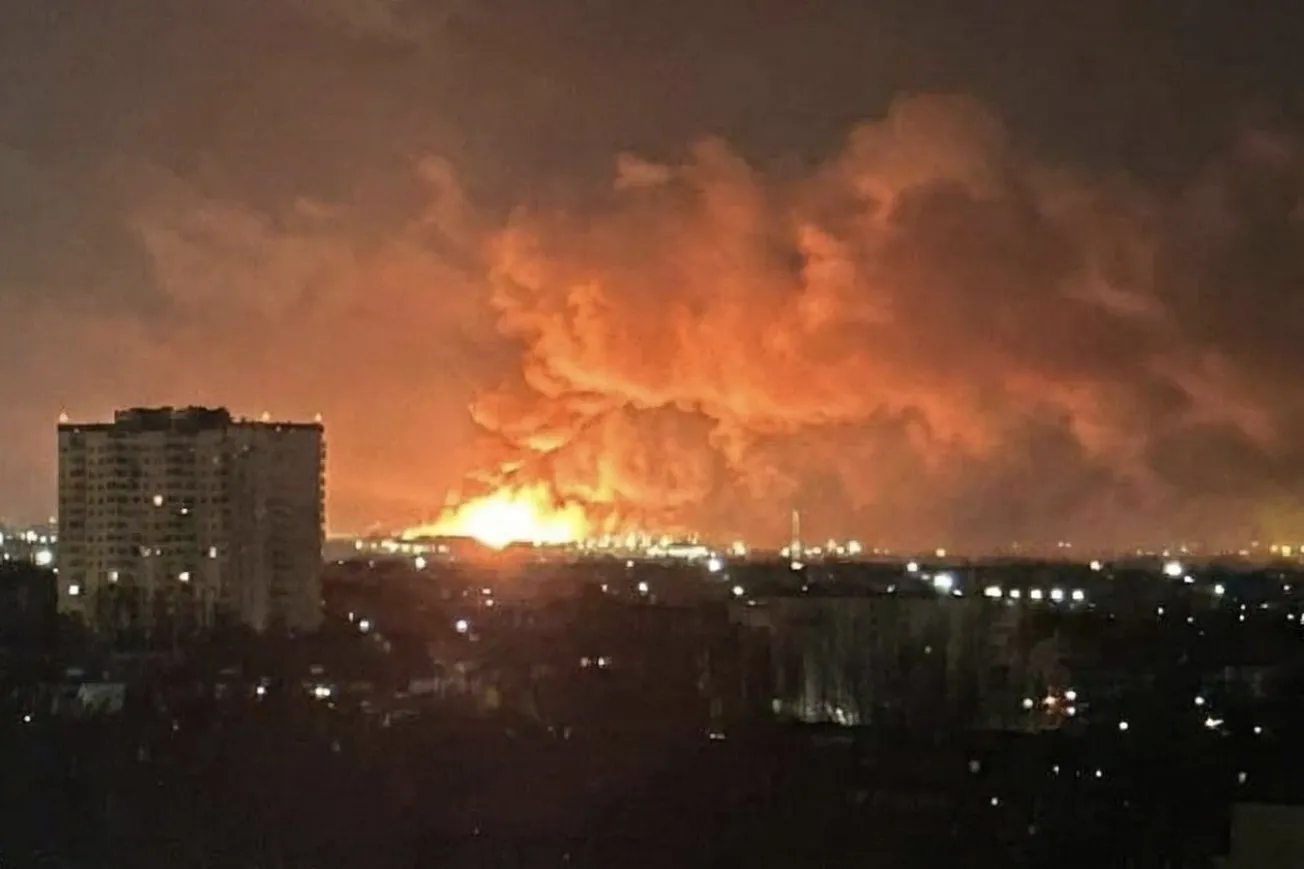On February 25, the "Uprising for Peace" rally in Berlin, demonstrating against arming Ukraine, brought in 10,000 people, surprising the powers that be.
On March 27, Germany came to a standstill as a strike called to protest runaway inflation was a huge success. In a scenario that was a replay of protests in the U.K. on February 1, nearly every mode of transportation in Europe's most advanced country - planes, trains, trams, buses - ground to a halt as unsuspecting travelers, estimated to total 400,000 remained stranded. At Frankfurt, all incoming and outbound flights were canceled for the day.
In a warning to warmongers in Germany's government, both protests were aimed at Germany's active support of Ukraine as voters are beginning to realize that a long grinding war is crippling life in Europe's wealthiest economy. Verdi, the union representing around 2.5 million public sector employees, is demanding raises of approximately 11%, an average pay hike of 500 euros monthly. This may feel shortsighted because more money in the hands of people makes inflation worsen, not improve. But Verdi is not thinking of those issues longer term. It wants relief for its members, and it wants it now.
In neighboring France, President Macron, on realizing that he doesn't have enough votes in parliament to pass his pension reform legislation, pushed it down the throats of the French citizenry anyway by employing an arcane constitutional provision. He survived a no-confidence vote, but the streets of French cities have erupted in protests. While the pension reform plan is not directly related to France's steadfast support of Ukraine, it indirectly is. The French, used to Europe's most liberal retirement benefits that start at 62, are experiencing significantly higher living costs in an economy that may not support workers beyond 62.
Citizenry peacefully lobbying governments is a bedrock principle of democracy. During the post-George Floyd protests in 2020, many became violent, resulting in riots in several cities, some that lasted months. The mainstream media has been careful not to describe violence for upsetting the narrative that it peddled: loss of treasure, life, and limb is acceptable because the cause of racial injustice is worthy. Only a few outlets cataloged the damage, with The Guardian counting that at least 25 Americans were killed. Thus far, protests in Germany and France have largely been peaceful, although significant property damage has occurred.
The conventional wisdom is that Ukraine is fighting America's war against a rogue Russia that has violated all international norms by attacking a sovereign country. The only cost, therefore, is money, as American lives are being spared. But this justification is losing ground as a conflict 5,000 miles away, and the administration's policies have profoundly affected the average American family.
In our Golden/TIPP poll, most Americans believe that inflation will persist or increase, and interest rates will go up even more, affecting big-ticket purchases such as homes and cars. While the Fed is a big culprit, the war overseas shoulders its share of the blame. The Biden administration has sent $115 billion to Ukraine, all borrowed or printed. Even if the war were to end tomorrow, reconstruction costs in Ukraine might amount to $700 billion, again borrowed or printed.
The Biden administration's energy policy of abandoning drilling on federal lands has also made America dangerously rely on foreign sources for oil. At the same time, the administration is spearheading a movement to severely cripple Russian exports to America and the West. Oil prices don't impact families only at the pump; every commodity becomes dearer when energy prices rise.
Inflation will be a consumer headache as long as sanctions against Russian energy and numerous other exports continue. An IMF report in October pointed out that inflation was higher than in several decades. "Global growth is forecast to slow from 6.0 percent in 2021 to 3.2 percent in 2022 and 2.7 percent in 2023. This is the weakest growth profile since 2001, except for the global financial crisis and the acute phase of the COVID-19 pandemic."
The British, Germans, and French are already taking to the streets, recognizing that western macroeconomic and war policies are hitting their pocketbooks and affecting their quality of life. The question is, how long will Americans suffer silently before they, too, begin to protest?
Like our insights? Show your support by becoming a paid subscriber!
Want to show your appreciation? Donate








